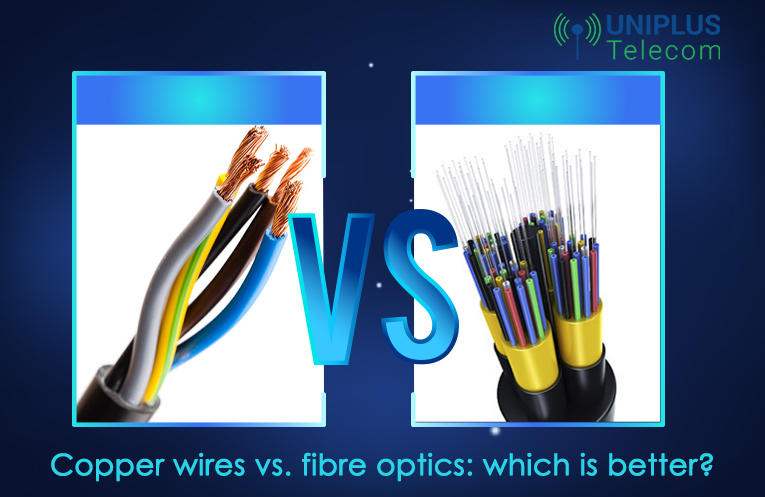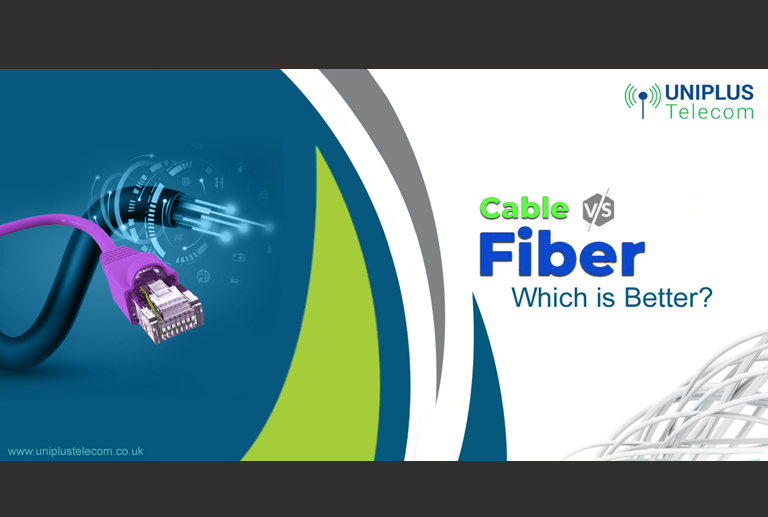The increase in the demand on bandwidth has necessitated the development of technologies for broadband that can provide users with a desired internet speed to cater to their requirements. This, in turn, has put the spotlight on two technologies that are currently in use more than ever before: cables involving copper wire and the cables based on fibre optics.
In view of the growing demand for better data connectivity, it is a good idea to know the difference between the two types of cable wires in order to make an informed decision.
- Bandwidth
While fibre optic cables are capable of producing a bandwidth of 1000MHz over a distance of 100, Cat 6A cable with copper wire has the capacity of producing only 600 MHz over the same distance. This makes fibre optics a clear winner in the battle of the bandwidth.
- Interference
Electrical current is not necessary for fibre. In other words, fibre broadband operates without the use of electricity. On the other hand, copper cables operate by virtue of electrical signals. As a result, it is vulnerable to the influence of electromagnetic interference (EMI). This makes fibre optics more reliable for data transmission than a traditional broadband based on copper wires as the former is highly unlikely to either catch fire or get influenced by environmental factors.
- Cost
The installation of a traditional broadband connection based on copper wires is cheaper compared to a
high quality fibre broadband. On the other hand, despite being cheaper in terms of installation, a copper wire – based connection can have a higher maintenance cost in contrast to the one based on fibre optics. Thus, it is up to a user to decide which one makes for a better choice between the two.
- Distance
Distance does influence the signal strength of connections based on fibre optics as well as copper wire. While there is a loss of just 3% of signal strength due to an increase in the distance from its source, it can be up to 94% in case of the latter. This is because the sensitivity to distance is more in case of copper than that of fibre optics.
Thus, considering all the aspects, it is evident that fibre connectivity is the clear winner in comparison to copper wire in all aspects. Still, the decision to make a choice rests at the discretion of a user. It is strongly recommended that a user should make a decision by weighing the pros and cons of both the forms of connection.



